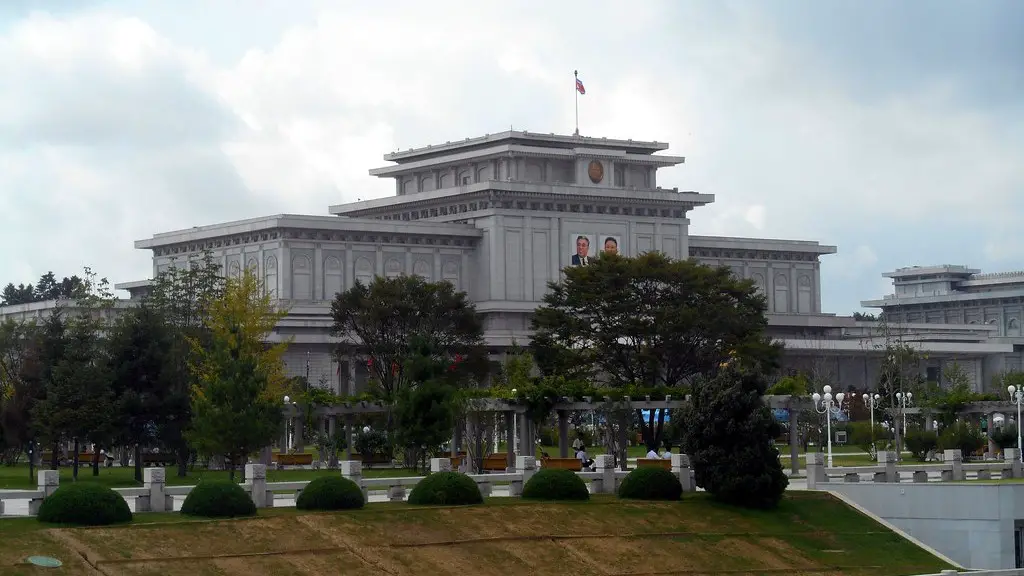History of Chinese Relationship With North Korea
Chinese-North Korean relations go back centuries, and yet in modern times, it has come under unprecedented scrutiny. Beijing openly endorsed the North Korean takeover of South Korea in 1950, and this began almost seventy years of Chinese-North Korean ties that have served as a buffer against American influence in the Korean peninsula. Although the People’s Republic of China (PRC) has maintained some semblance of cordiality with Pyongyang over the years, it has also been one of the biggest critics of its oppressive policies.
Chinese Sanctions Against North Korea
The Chinese government has repeatedly condemned the North Korean regime’s human rights record, and has never hesitated to voice its opposition to the dictatorship’s nuclear program. Beijing even signed United Nations resolutions that impose economic sanctions against the DPRK, although they are far less severe than the ones imposed on other countries in the region.
The Chinese government considers North Korea as a “last resort”, as it is often referred to in international diplomatic circles. This means that China is willing to turn a blind eye on certain actions taken by the Pyongyang authorities, in order for it to maintain stability in the region. In the past, Chinese officials have directly urged North Korea to pull back from its nuclear ambitions, and reduce its reliance on China for military support and supplies.
When the United States and the United Nations took action against North Korea for its missile tests in 2017, the Chinese government strongly voiced its opposition to Washington’s hard-handed tactics, citing that these actions would only increase tension in the region and complicate the peace process.
Chinese Military Help to North Korea
China has provided North Korea with military support on a limited basis, mainly through weapons sales and border security measures. There have also been allegations that Chinese actors are helping Pyongyang acquire materials and parts for its nuclear program, though the evidence for this is not definitive. Beijing also provides humanitarian assistance to North Korea, and its support for the North has generally been seen as a buffer against an unstable environment on the Korean peninsula.
China’s Current Position On North Korea
China’s official stance on North Korea can be summed up in two words: strategic patience. This concept, which is commonly used in diplomacy circles, means that Beijing is prioritizing the need to preserve peace and stability in the region, rather than focus on the Pyongyang regime’s human rights abuses and nuclear ambitions.
This position is pragmatic, as China has made it clear that it is not willing to go against the wishes of the North Korean leadership. Nonetheless, the PRC has been willing to cooperate with the United States when it comes to efforts to denuclearize the Korean peninsula.
China’s Support For North Korea’s Reform
Beijing has also voiced its support for North Korean reform, and has even offered to help Pyongyang transition from its Stalinist economy to a free-market system. While some experts are skeptical about China’s willingness to help North Korea, President Xi Jinping has publicly stated his commitment to working with Pyongyang in order to bring about a more stable and prosperous future for the Korean peninsula.
International View On China’s Role In North Korean Reform
China’s role in North Korean reform has been met with mixed reactions from the international community. While some believe that Beijing’s commitment to diplomacy is a step in the right direction, others believe that it is not doing enough to put pressure on Pyongyang to abandon its nuclear ambitions and improve its human rights record.
Some analysts have also pointed out that despite China’s supposed commitment to peace and stability, there is evidence that it continues to engage in strategic support of the North Korean regime. This includes allowing North Korean companies to operate within its borders and providing support to certain members of the ruling elite.
North Koreas View On China
The North Korean government has often spoken highly of China’s commitment to peace, stability and development in the region. Over the years, the North Korean leadership has praised Beijing for its “brotherly” friendship and its efforts to constructively engage with the DPRK on a number of issues.
Despite the Kim Jong-un regime’s warm rhetoric towards China, there have been reports that it is becoming increasingly frustrated with Beijing’s refusal to commit to further economic investment in North Korea and its reluctance to back Pyongyang’s nuclear ambitions.
China’s Role In North Korean Denuclearization Process
The Chinese government has been largely supportive of the denuclearization process, and has even played a key role in encouraging dialogue between the United States and North Korea. Beijing has put considerable diplomatic pressure on the DPRK leadership, urging it to abandon its nuclear program and open up the country to foreign investment.
At the same time, the Chinese government has also been critical of Washington’s hardline stance on North Korea. It has warned that crippling economic sanctions and harsh rhetoric will not bring about a peaceful solution to the current crisis. Instead, Beijing has advocated for a diplomatic approach that focuses on dialogue and compromise.
Economic Relations Between China And North Korea
China is by far North Korea’s largest trading partner, accounting for approximately 85% of North Korea’s total trade, according to the U.S.-Korea Institute at Johns Hopkins University. The bilateral trade relationship between the two countries was worth an estimated $4.7 billion in 2018, and as a result, China is seen as North Korea’s lifeline when it comes to accessing outside resources and supplies.
However, China has recently taken steps to reduce its economic dependency on North Korea, with the implementation of sanctions and a commitment to cracking down on illegal trade. This has put a serious strain on the fragile economic relationship between the two countries, and has raised questions about China’s commitment to helping North Korea transition to a more economically stable state.
Chinese Tourism To North Korea
The number of Chinese tourists visiting North Korea has been steadily declining in recent years. This decline has largely been attributed to the sanctions imposed by Beijing, as well as concerns about safety and civil rights. In addition, many Chinese citizens are unaware of the growing restrictions on foreigners travelling to the DPRK, a fact that has served to further deter potential visitors.
Conclusion
Overall, it is difficult to pin down the Chinese government’s exact position on North Korea. Beijing has long-maintained a policy of strategic patience when it comes to the Kim Jong-un regime, offering diplomatic and economic support while also pointing out its human rights abuses and nuclear ambitions.
At the same time, China has been an instrumental player in encouraging dialogue and promoting reform in North Korea. However, it has also been accused of enabling the DPRK’s oppressive regime, and of failing to take meaningful action to pressure Pyongyang into abandoning its nuclear weapons program. Ultimately, it is up to the Chinese government to decide how it wants to handle its relationship with North Korea in the future.


